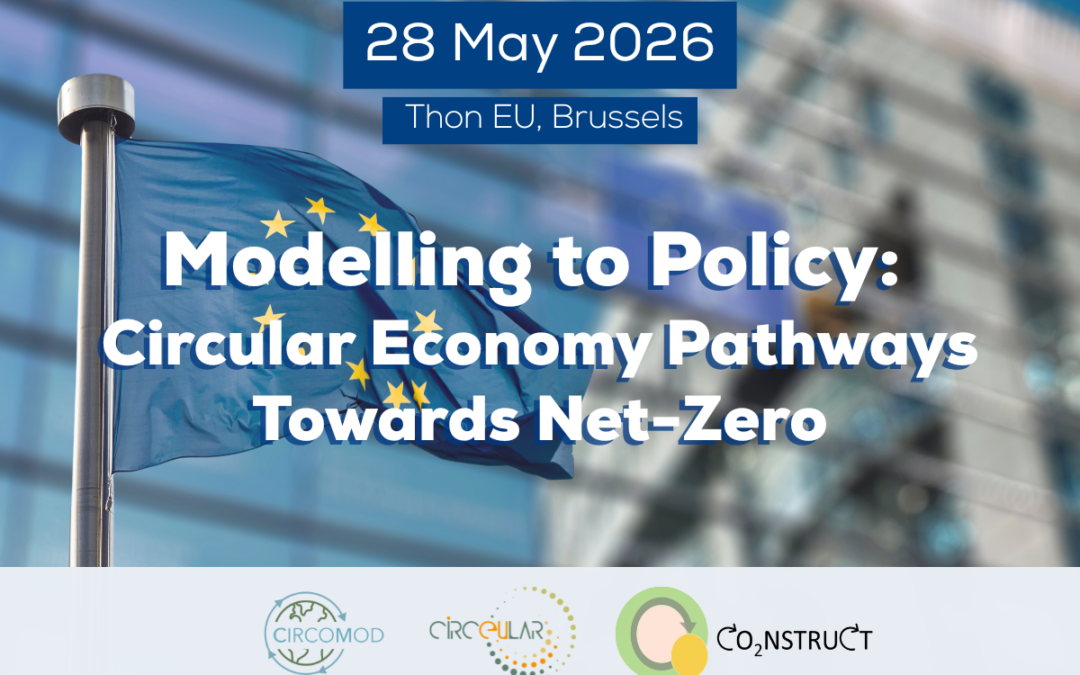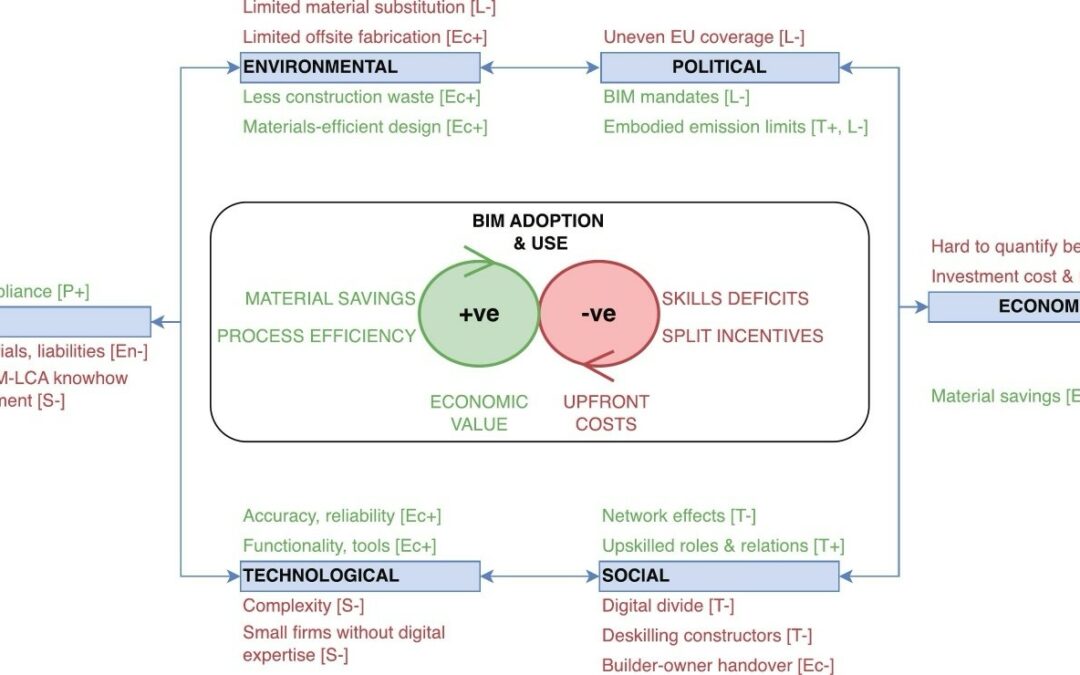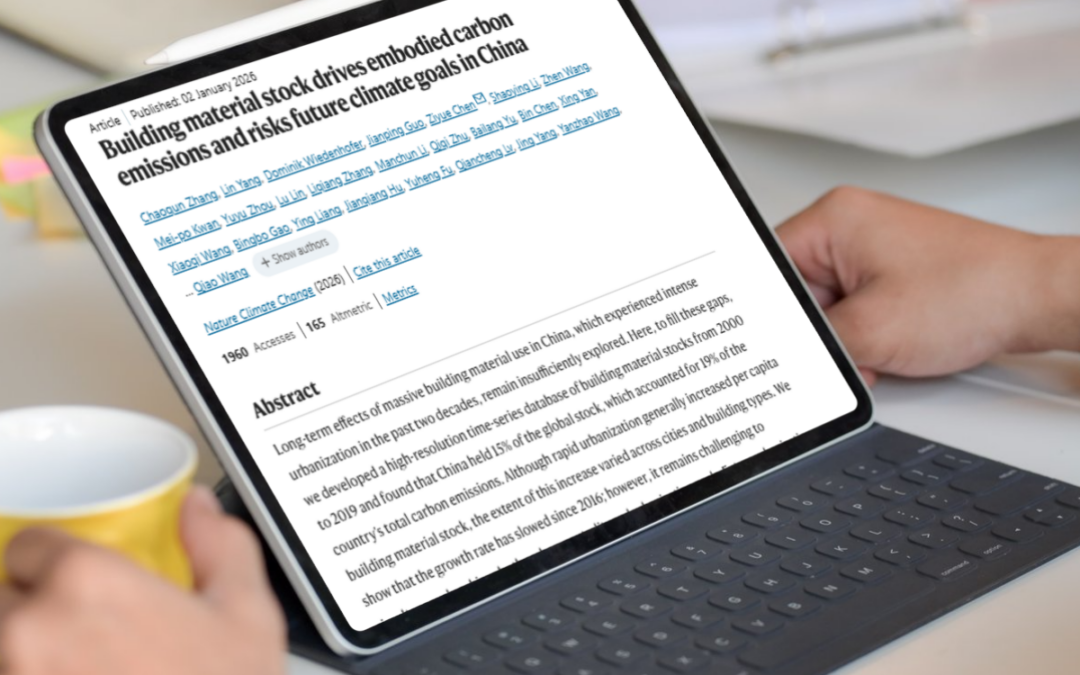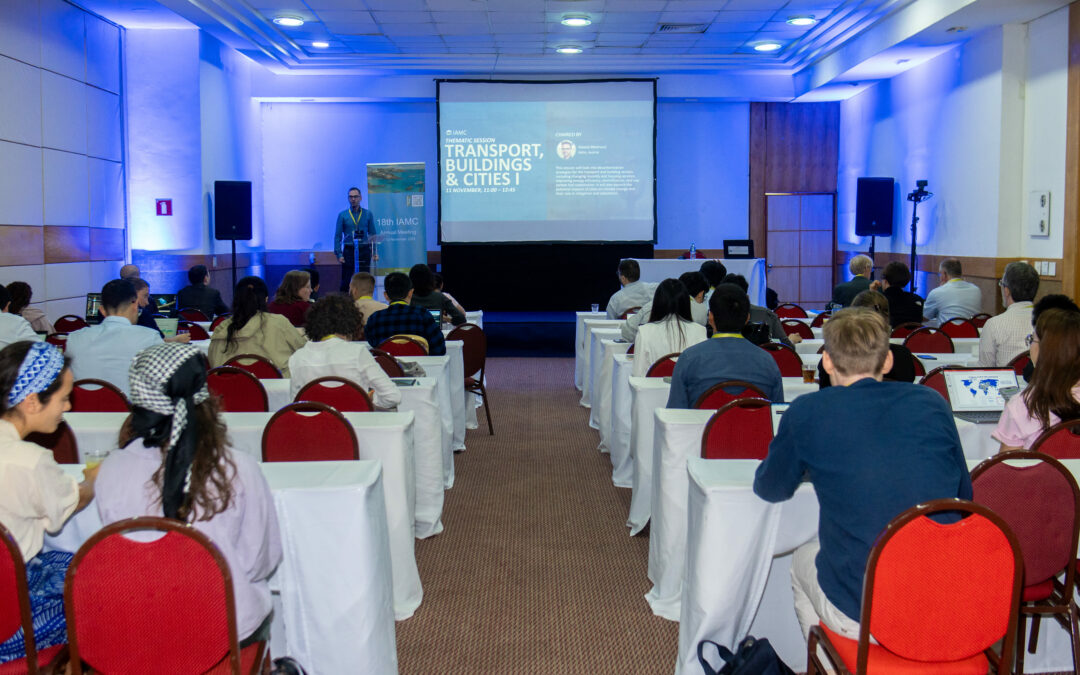
Feb 19, 2026
A dynamic afternoon exploring evidence-driven insights on climate mitigation contributions from circular economy strategies for construction – buildings, transport and energy infrastructure; services – housing and mobility; and system-wide enablers and impacts including digitalisation, behaviour change, and rebound effects.

Feb 10, 2026
BIM could become a key digital enabler of circular economy principles if barriers to adoption are addressed through policy, skills development, and better incentives.

Jan 27, 2026
An international study involving BOKU University now reveals how unevenly building growth has occurred over the past 20 years, and how this contributes to climate-damaging emissions.

Jan 19, 2026
T6 Ecosystems is coordinating a series of five policy briefs for CircEUlar that aims to connect circular-economy modelling with these strategic directions: stay tuned!

Jan 12, 2026
CircEUlar researchers Florian Maczek and Alessio Mastrucci participated in the 18th Integrated Assessment Modeling Consortium (IAMC) Annual Meeting, held from 11-13 November 2025 in the city of Armação dos Búzios, state of Rio de Janeiro, Brazil.





